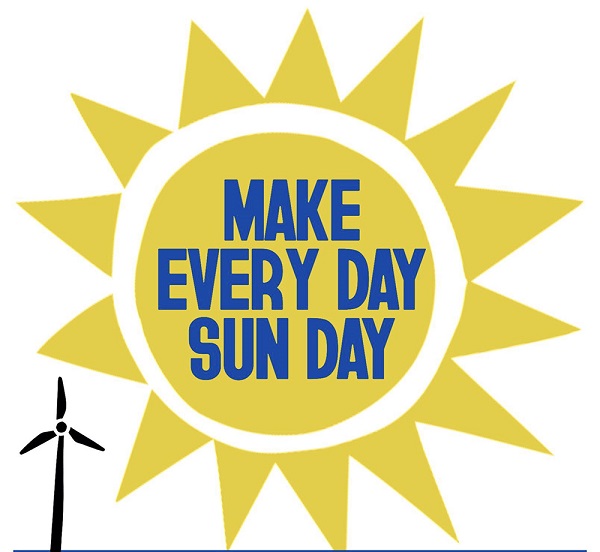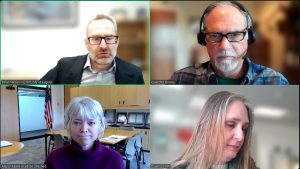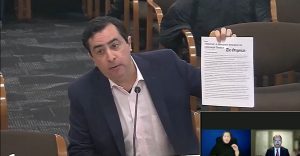EWEB asked to drop ‘dirty’ biomass from portfolio
9 min read
Presenter: Public comments ask the EWEB board to reject a biomass contract. At the meeting Sept. 2, Craig Patterson:
[00:00:07] Craig Patterson: I want to talk about the upcoming biomass contract renewal. First of all, the fact that it was a nondisclosure contract, I believe undermines confidence in a public utility. However, my understanding is that the Register-Guard found out that you guys are paying 8.7 cents a kilowatt-hour for that biomass dirty energy, whereas the BPA wholesale rate is 3.59 cents.
[00:00:43] A Manomet study found that biomass is 40 times dirtier than coal and 300 times dirtier than natural gas, in part a function of energy density. So why is EWEB paying almost two and and a half times for very dirty power?
[00:01:04] A perspective: The Gilchrist (State) Forest sells non-sawlogs for between $5 and $10 a ton. A cord of Douglas fir green weighs about two tons, so you’re looking at somewhere between $10 and $20 equivalent in biomass material. However, then you have to include the harvesting, the transport, the shipping, the drying, and the burning. Juxtapose that with a cord of firewood that runs between $200 and $300 a cord, or 10 or 15 times more as firewood.
[00:01:53] The second issue I just want to briefly talk about is conservation. The Northwest Power Planning Act defines conservation as the number one priority of the region. However, 98% of conservation programs are deemed or projected without verification. Today only upper-middle-class people can benefit from conservation programs because most of them require out-of-pocket expenses.
[00:02:20] And then when you look at the discrepancy historically, where the Power Planning Council says we’ve saved 7,000 megawatts and BPA says it’s 2,357 megawatts. No one seems to want to vet or care about this extreme variation.
[00:02:43] Today, 20% of utility customers have to choose whether they pay rent, food, medicine, or energy. And raising the basic charge undermines conservation in low-income users, ignores excessive consumption, that the general manager of Lane Electric said at the annual meeting that their second-highest user is an indoor grow—
[00:03:11] Nancy Ahnert: I’m Nancy Ahnert. From (EWEB General Manager) Frank Lawson’s recommendation to renew the Seneca Power purchase agreement (and I quote): ‘According to the state of Oregon, the Seneca project is considered renewable and it displaces generation from fossil fuel sources like coal.’
It’s pitiful to consider an energy source that’s compared to coal to make it look favorable. EWEB needs to do better than this. I support not renewing the Seneca Purchase Agreement.
[00:03:44] Biomass burning as a renewable source of energy has come into serious question. As long as there is a market, and as long as there is a market for the energy produced by biomass burning, there is an incentive to burn wood from all possible sources, including trees that would not otherwise be harvested.
[00:04:10] Is there an unbiased watchdog tracking what goes into Seneca’s biomass facility, or does EWEB rely on Seneca for this information?
Money spent on the Seneca contract might be better invested in working on truly renewable and reliable sources of electricity, such as ways to overcome impediments to large scale local solar energy generation with battery storage. We would waste time and money on biomass. We can do better. Thank you.
[00:04:51] Debra Higbee: Hello, my name is Debra Higbee and I’m representing the Oregon Chapter of Sierra Club, and we would like to express our opposition to extending EWEB’s contract with Seneca Sustainable Energy Biomass Generator, now owned by Sierra Pacific Industries in West Eugene, and our concerns about the lack of public process.
[00:05:11] Biomass is an increasingly contentious source of energy due to its significant air pollution and climate impacts, and despite being labeled as ‘renewable energy,’ biomass relies on and further incentivizes industrial logging, which is the single largest source of carbon emission in Oregon. It also incentivizes removal of woody material that is vital for ecosystem integrity because in a forest, it provides habitat and breaks down to become future forest soil.
[00:05:46] While burning wood for energy is extremely inefficient, a 2018 study found that biomass releases more planet-warming carbon dioxide per unit of energy than coal or gas, as was just stated. The finding was reiterated in 2018 in a letter to the European Union, signed by over 800 scientists and a 2021 letter to the Biden administration signed by hundreds of scientists.
[00:06:14] What’s more, a report from the Environmental Integrity Project has found that the facilities like the one in Eugene emit significant amounts of hazardous pollutants. This is especially concerning in light of the location of the facility, which is in West Eugene, an area that has long faced disproportionate air pollution from industrial facilities. In just the 97402 zip code of West Eugene alone, 550,000 pounds of toxic emissions were released in 2019. This accounts for 96% of all the emissions released in the city of Eugene that year and every year since then.
[00:06:56] It’s especially concerning that with a significant controversy around biomass, the current proposal to extend the utilities contract with the biomass facility has not had a public hearing, and it’s only been public for less than a week.
[00:07:12] It’s unacceptable for EWEB to move forward with an extension of such a controversial contract without public engagement. The utility must, at the very least, delay this decision and hold a public hearing and public comment period in order to ensure that this decision is in the interest of EWEB customers.
[00:07:32] In light of this information, we call on EWEB commissioners to delay any decision on the extension of EWEB’s contract with Seneca Sustainable Energy Biomass Generator Facility until a public hearing, and oppose the project due to its significant impacts on climate and public health and instead invest in local generation, virtual power plants, and energy efficiency programs.
[00:07:55] Jim Neu: My name is Jim Neu… Seattle City Light recently entered into a contract with two solar developers in Central Oregon to generate 45 and 50 megawatts of power each to offset an expected 1,800 megawatts of power needed by 2030 due to electrification, data centers, and AI facilities. They are looking to fill this shortfall with solar rather than hydro in anticipation of a low snowpack predicted by climate scientists that will affect utilities along the West Coast.
[00:08:24] I recall repeated assurances from EWEB that the utility has ‘a demand problem, not a supply problem’ when it comes to resource adequacy. It is clear that this is changing. Other resources will be necessary as EWEB considers its new contract with Bonneville Power and other utilities face the same dilemma.
[00:08:42] Local self-contained microgrid energy systems comprised of generating resources and battery storage are key in providing energy to the utility network. Gov. Kotek recently signed microgrid legislation which will create a process for the PUC to create rules and guidelines for microgrid interconnection operation, compensation, and require utilities to develop community-owned microgrids by 2030.
[00:09:07] Renewable energy sourcing with battery energy storage systems coupled with microgrid technology will be key in the utilities’ resource supply.
[00:09:15] Bill McKibben’s Third Act and 350 Eugene partner to present Sun Day solar celebration teach-ins on Sunday, Sept. 21, from 12:30 p.m. to 3 p.m. at the Campbell Community Center. The public is invited to attend. There will be five 15-minute teach-ins on the basics of solar, solar installation, nuts and bolts, future of clean energy, citizen activism, amps up solar projects, and democracy and climate.
[00:09:41] There will be tabling, EV and electric bicycles displayed. We hope you can attend (somebody from EWEB). Also, and briefly, burning wood to produce electricity has been proven unsustainable by science and is a major polluter when there is abundance of inexpensive renewable energy resources available.
[00:10:04] The IPCC in 2023 states, ‘If one combustible fuel is replaced with another, we will not achieve benefits to human health and well-being.’ Despite what the state of Oregon claims, biomass is not a renewable energy source.
I urge you to not extend the Seneca LLC contract another three years unless stipulated in the contract there would be: use of mill waste or slash is the only feedstock, not whole trees; exhaust filters are installed to replace particulate matter; and EWEB gets priority access to generated electricity in case of regional outlets.
Frankly, there has been not enough time for the public to be made aware of this issue. It feels like it’s a rushed decision.
[00:10:48] Stephen Fuller-Rowell: My name is Stephen Fuller-Rowell. I live in Eugene and I am an EWEB ratepayer. We have a heat pump in the home. We drive an electric vehicle and use electric-assist bicycles for short trips around town. I’m grateful to EWEB for rebates making these transitions smooth for us. Thank you.
I’m also active with several organizations in the Pacific Northwest opposing false solutions to climate change. However, today I’m speaking for myself.
[00:11:18] Last week, Jim Neu (who spoke to you a moment ago from 350 Eugene) sent you a paper explaining why biomass energy is not a clean or renewable strategy to reduce CO2 levels in the atmosphere. I sent the same information to EWEB staff back when the board was working on your long-term strategic power supply planning. I hope you have had time to read this paper.
[00:11:44] It is possible that you may decide to ignore this information and rely on the IPCC and the state of Oregon’s classification of biomass energy as renewable. If you do that, I strongly suggest that you include in any agreement with Seneca an escape clause from any binding commitment by EWEB. The global recognition that biomass energy is neither clean nor renewable is gathering momentum.
When the IPCC inevitably modifies their policy and when this change eventually percolates down to Oregon, it would be a good if extracting EWEB from any commitments with Seneca could have less impact on your ratepayers than extracting EWEB from nuclear power supply contracts in the past.
[00:12:29] In conclusion, I trust that you will do what’s best for us, your ratepayers, and for the planet.
[00:12:34] Presenter: Mark Robinowitz:
[00:12:36] Mark Robinowitz: I urge EWEB to expand your website to include a greater discussion of the western power grid, WECC, Western Electricity Coordinating Council. There’s a slight mention but it doesn’t really discuss how the western power grid is the system that EWEB is but a small part of.
[00:12:57] There’s no mention that natural gas is the number one source of electric generation in the West; that the increase of electric generation in recent decades has mostly been from natural gas, and no one’s building new big dams, and a few have even been removed for fish habitat.
[00:13:18] Instead of advocating for more electricity, we should advocate for less electricity, less of everything— less air conditioning in this room, maybe. We need to consider the earth as abundant and finite. The recent closure of Boardman was replaced by natural gas, but natural gas for conventional wells has mostly run out and three-fourths of the natural gas flow, as you may or may not know, is from fracking and fracked wells don’t last as long. They’re more polluting, more expensive.
[00:13:55] Regarding Seneca (so-called) Sustainable: Discussing or rubber-stamping this on a day of high air pollution is maybe appropriate. We have known for thousands of years that deforestation causes desertification. This was seen during the days of the Roman Empire and even before. And it is one of the main factors behind climate change that has led to an increase in forest fires. Clear-cutting destroys forests.
[00:14:27] Seneca and their new parent company clear-cuts and sprays 2,4-D over their clear-cuts which we called Agent Orange when it was done in Vietnam. It causes cancer and birth defects and birth mutations and other problems.
[00:14:43] LRAPA refused to even put a camera in front of the hopper for the incinerator over there to make sure only logging slash was put in there. And driving logging slash from the forest to the mill requires a lot of diesel fuel.
[00:15:01] I’ve used solar panels since 1990. They’re great, but they’re not going to replace our current consumption (pun intended). We need to power down, reduce consumption, reduce our greed, stand up to the data centers and say: We do not need endless data centers everywhere, and we need to focus on what’s going to be needed for our long-term survival as a species in an ecosystem (which, of course, we’re not doing).
[00:15:30] Presenter: Public comments Sept. 2 ask EWEB not to renew the contract for biomass-generated electricity.






